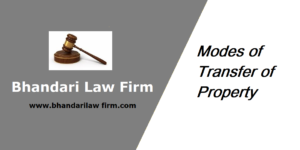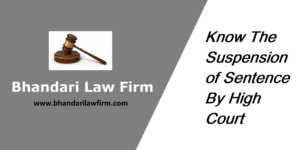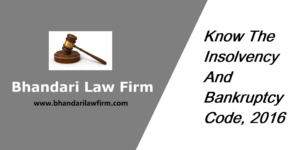Section 138 NI Act: Cheque Not Valid If Amount Written Is Uncertain.
According to section 5 of the Negotiable Instruments Act “Bill of exchange”. — A “bill of exchange” is an instrument in writing containing an unconditional order, signed by the maker, directing a certain person to pay a certain sum of money only to, or to the order of, a certain person or to the bearer of the instrument Cheque Not Valid If Amount Written Uncertain.
And Section 6 of the Negotiable Instruments Act defines what a ‘cheque’ means. According to this provision, a cheque is basically a bill of exchange drawn on a specific banker. Furthermore, it is not payable otherwise than on demand. A truncated cheque is one which undergoes truncation during a clearing cycle.
Therefore for the offence under section 138 of the negotiable instrument act, (the drawer of such cheque fails to make the payment of the said amount of money to the payee or, as the case may be, to the holder in due course of the cheque, within fifteen days of the receipt of the said notice.) cannot be proved as it must be a valid bill according to section 5 or a valid cheque under section 6. Cheque Not Valid If Amount Written Uncertain.
Also, there are certain conditions for a valid cheque-
- an instrument in writing; Cheque Not Valid If Amount Written Uncertain.
- containing an unconditional order signed by the maker;
- directing a certain person to pay;
- a certain sum of money and; Cheque Not Valid If Amount Written Uncertain.
- only to, or to the order of, a certain person or to the bearer of the instrument.
In the present case, there was no certain amount written on the cheque was not certain, not satisfy point 4, Therefore it is not termed as a cheque. Cheque Not Valid If Amount Written Uncertain.
Therefore the section 18 of the negotiable act cannot be played. (Where the amount is stated differently in figures and words, — If, the amount undertaken or ordered to be paid is stated differently in figures and in words, the amount stated in words shall be the amount undertaken or ordered to be paid.)
In the present case, as instrument presented was not a cheque with the definition of section 6 of NI Act, a notice for subsequent dishonour of such instrument will not impose any liability upon the drawee either for non-compliance or for non-issuance of a fresh cheque. And find that the material presented before the trial court was sufficient to conclude that as the instrument on the basis of which complaint was filed was not a valid cheque within the definition of section 6 of NI Act, no notice u/s 251 Cr.P.C could have been framed against the accused/ revisionists and accordingly find the order of the ld. The trial court, whereby the application of the revisionists.
Recently in case titled as M/s Shree Tyres and others Versus State and other (Cr. Revision No. 742/2019) PATIALA HOUSE COURTS: NEW DELHI, Hon’ble Session Judge, held as under:-
From the Judgement – “In order to protect the rights of the receiver of a cheque in good faith, the scope of section 138 of NI Act with regard to the dishonour of a cheque had been expanded. However, the fact remains that the instrument presented has to be a valid cheque as defined by section 6 of the NI Act and it only thereafter, if the cheque is dishonoured for any reason, that section 138 NI Act will come into the picture. The noticeable fact is, that the cheque was invalid on the face of it because of uncertainty as to the amount written in words. It is not the case that the receiver could not have known the defect of the cheque when he received it or, where due to some future act on the part of the drawee that the cheque was dishonoured. Thus, the judgment of Laxmi Dyechem cannot come to the aid of the respondent in this case.”
Read Also: No Case If Amount Written in Cheque Is More Then Liability
The main question regarding this case was- if such an instrument was presented and dishonoured, would it amount an offence u/s 138 of the NI Act?
The offence u/s 138 NI Act is stated to be committed by a person when a cheque issued by him, in the discharge of a legally recoverable debt or liability, is dishonoured and such dishonour is on account of insufficiency of funds or on account that it exceeded arrangements with the bank. Further, the drawer of the cheque despite receipt of a legal notice within the stipulated time fails to pay the amount of the cheque. It is to be seen that the entire section 138 of N. I. Act talks about a cheque. The word ‘cheque’ used in section 138 of the N. I. Act carries the same meaning as defined u/s 6 of the NI Act. Thus, the offence u/s 138 NI Act can only be said to have been committed if, the instrument that was presented and dishonoured was a cheque as defined by the section 6 of the NI Act.
The procedure that is followed in matters with regard to Section 138 of the Act is as follows:
- A legal notice is to be issued to the drawer within 15 days of dishonour of cheque by registered post with all relevant facts. The drawer is given a time of 15 days to make the payment if the payment is made then the matter is served and the issue is settled. On the other hand, if the payment is not made then the complainant is to file a criminal case process under Section 138 of the Act, against the drawer within 30 days from the date of expiry of 15 days specified the notice, with the concerned magistrate court within the jurisdiction.
- The complainant or his authorized agent should appear in the witness box and provide relevant details for filing the case. If the court is satisfied and finds substance in the complainant, then a summons will be issued to the accused to appear before the Court.
- If after being served with the summons the accused abstains himself from appearing then the court may issue a bailable warrant. Even after this if the drawer does not appear a non-bailable warrant may be issued.
- On the appearance of the drawer/accused, he may furnish a bail bond to ensure his appearance during the trial. After which the plea of accused is recorded. In case he pleads guilty, the court will post the matter for punishment. If the accused, denies the charges then he will be served with the copy of the complaint.
- The Complainant may present his evidence by way of affidavit and produce all documents including the original in support of his complaint. The complainant will be cross-examined by the accused or his counsel.
- The accused will be given an opportunity to lead his evidence. The accused will also be afforded an opportunity to submit his documents in support of his case, as well as witnesses in his support. Accused and his witnesses will be cross-examined by the complainant.
- The last stage of the proceeding is that of the arguments after which the court will pass judgment. If the accused is acquitted then the matter ends, but the complainant can go on further appeal in the High Court, similarly, if the accused is convicted he can file an appeal in the Sessions Court. Cheque Not Valid If Amount Written Uncertain.
Note: For any further information or any query you may contact us on 9855677966 or via email info@bhandarilawfirm.com



